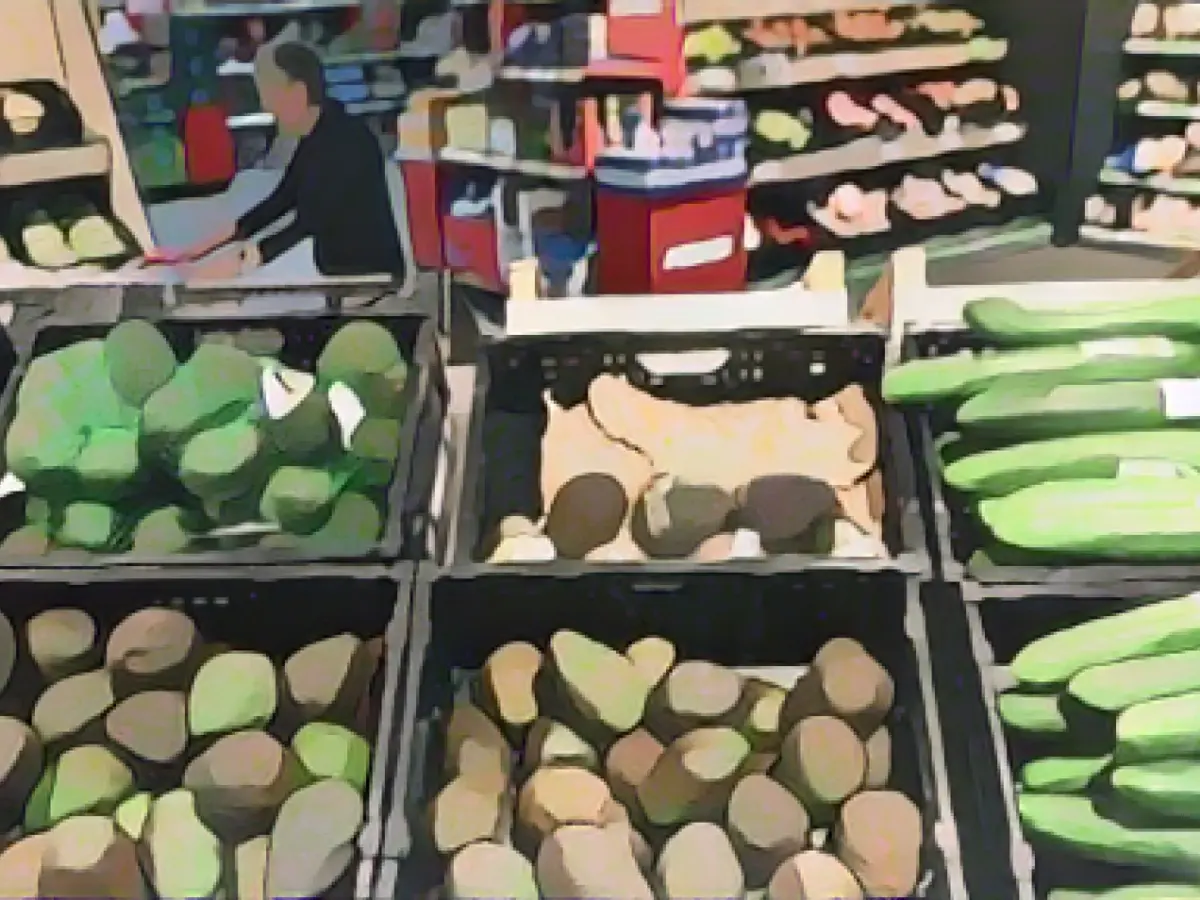Inflation: energy prices continue to fall - food remains a price driver
The last time the inflation rate was lower was in June 2021. In the months following Russia's attack on Ukraine in particular, energy prices and therefore the inflation rate rose enormously. "In October and November 2023, many energy products in particular were cheaper than a year earlier. The price situation has visibly eased here," explained Ruth Brand, President of the Federal Statistical Office.
Energy products became 4.5 percent cheaper year-on-year, compared to a price drop of 3.2 percent in October. The price of light heating oil fell by 19.4%, natural gas by 18.3% and fuels by 6.9%. Electricity, on the other hand, was 1.6% more expensive in November 2023 than a year earlier.
"Annual food inflation has also continued to weaken, but is still significantly higher than overall inflation," Brand continued. According to the report, food prices rose by an average of 5.5 percent year-on-year. In October, the rate was still 6.1 percent, in September 7.5 percent and in August 9.0 percent.
Food inflation was strongly influenced by higher prices for fruit (12.0 percent) and sugar, jam, honey and confectionery (11.9 percent). Bread, vegetables, fish and meat also became noticeably more expensive. Edible fats and oils, especially butter and rapeseed oil, were cheaper than in the previous year. Olive oil, however, increased massively in price (43.5 percent).
"The detailed data on German inflation shows that inflationary pressure is weakening across the board," explained Sebastian Dullien, Scientific Director of the Hans Böckler Foundation's Institute for Macroeconomics and Business Cycle Research (IMK). "The price increase rates of more and more products are approaching the European Central Bank's two percent target again."
However, inflation could rise again in December because the German government took over the advance payments for natural gas in the previous month. In addition, the energy price brakes and the reduction in VAT on energy and in the catering sector expire at the turn of the year. "There is therefore an increased risk that inflation will be even higher than previously thought, at least in the first half of the year," explained Dullien.
Read also:
- This will change in December
- German activists speak out in Dubai on suffering in Israel and the Gaza Strip
- Nuclear fusion - hype or solution to energy problems?
- Budget crisis fuels debate on citizen's income - Bas warns against populism
- According to the data from Destatis, the inflation rate in November 2023 showed a significant decrease, primarily due to a drop in energy prices.
- Ruth Brand, the President of the Federal Statistical Office, mentioned that many energy products were cheaper in October and November 2023 compared to the previous year, contributing to the reduction in inflation.
- The year-on-year comparison showed that energy products experienced a decrease of 4.5%, with various fuels, light heating oil, and natural gas seeing significant price drops.
- However, electricity prices showed a slight increase of 1.6% in November 2023 compared to the previous year, which stayed somewhat unaffected by the overall trend.
- Discussing food inflation, Ruth Brand pointed out that it continued to weaken, but remained significantly higher than the overall inflation rate.
- Inflation in the food sector dropped to a year-on-year average of 5.5% in November 2023, with a major price increase in items like fruit, sugar, jam, honey, and confectionery.
- The rise in food inflation was primarily driven by higher prices for fruit and sugar-related products, while other food items such as bread, vegetables, fish, and meat also saw an increase in price.
- Despite the overall decrease in inflation, energy price remains a potential driver for further price increases, especially with government policies like the energy price brakes and VAT reductions approaching their expiration.
Source: www.stern.de







